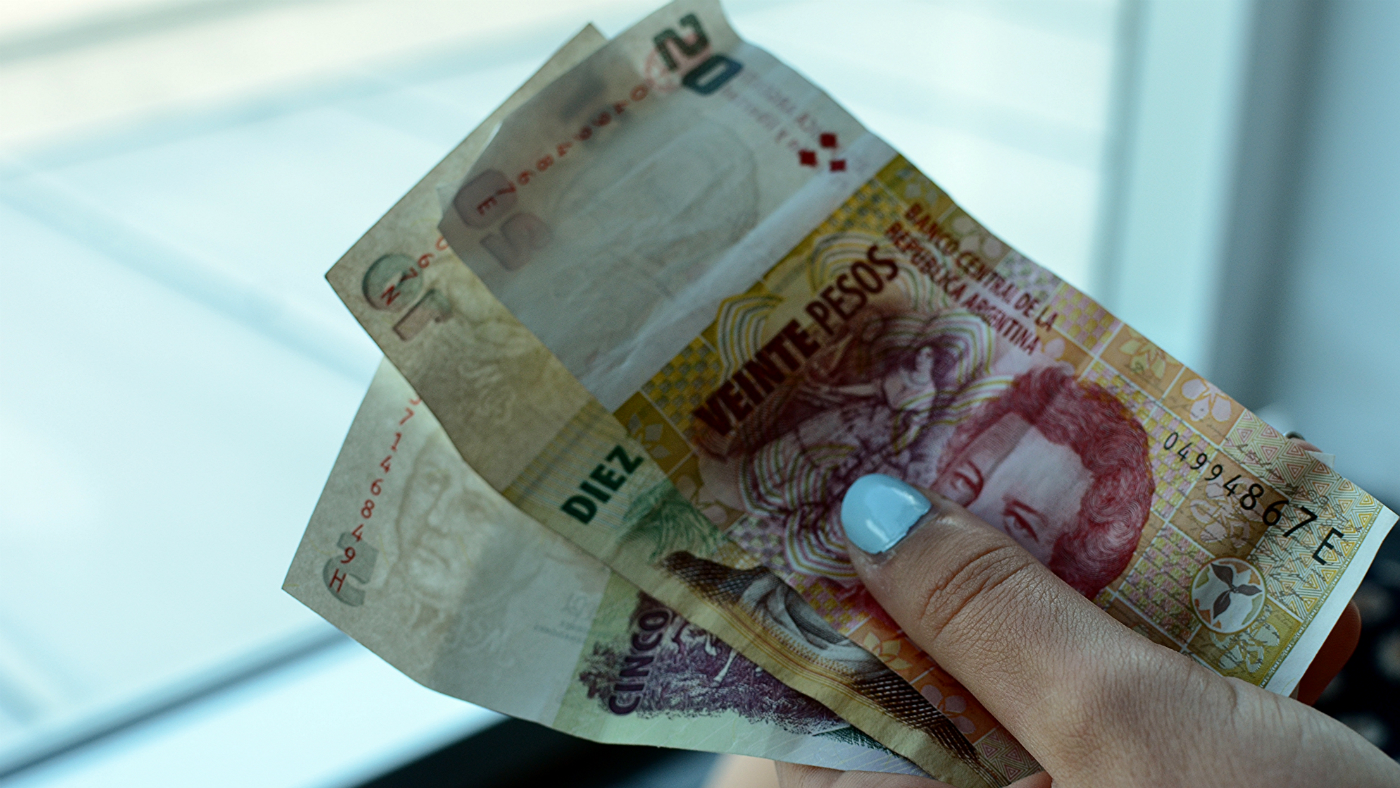Argentina seeks accelerated release of $50bn IMF bailout
Unexpected appeal for early payment of loan comes as peso plummets

A free daily email with the biggest news stories of the day – and the best features from TheWeek.com
You are now subscribed
Your newsletter sign-up was successful
The International Monetary Fund (IMF) is reportedly considering a request from Argentina for the early payout of a $50bn (£38bn) loan, as the country’s economic crisis worsens.
The unexpected appeal from Argentine President Mauricio Macri follows “a collapse in investor confidence” in his government that sent the peso tumbling more than 7% yesterday, says RTE.
It was the biggest one-day decline in the peso since the currency was allowed to float in December 2015. The peso is down 45.3% against the dollar this year, prompting “massive central bank interventions”, the Dublin-based news site reports.
The Week
Escape your echo chamber. Get the facts behind the news, plus analysis from multiple perspectives.

Sign up for The Week's Free Newsletters
From our morning news briefing to a weekly Good News Newsletter, get the best of The Week delivered directly to your inbox.
From our morning news briefing to a weekly Good News Newsletter, get the best of The Week delivered directly to your inbox.
Argentina’s economy has been battered by years of soaring inflation, with successive populist governments printing money to finance wide budget deficits, causing consumer prices to spike.
The run on the peso prompted the country to turn to the IMF for the $50bn credit line earlier this year. In return, Argentina’s government promised to speed up plans to reduce the fiscal deficit.
In June, the country received the first $15bn (£11.5bn) tranche of the payment from the IMF, with a further $3bn (£2.3bn) due in September, the Daily Express reports. But the Argentine government wants to revise this schedule in light of the growing need for emergency funds, although it is unclear how much money Macri is requesting.
In a statement on Wednesday, IMF managing director Christine Lagarde said that she’d had a “productive conversation” with Macri, and that IMF authorities would be “working to revise” Argentina’s economic recovery by implementing “stronger monetary and fiscal policies and a deepening of efforts to support the most vulnerable in society”.
A free daily email with the biggest news stories of the day – and the best features from TheWeek.com
“Economists had long argued that Argentina’s peso currency was overvalued, and the government acknowledged that it would depreciate gradually over the years,” Reuters reports. A widespread drought and failing crops have exacerbated the economic crisis.
However, “no one expected the speed with which the peso plunged against the dollar in April, due to investor concerns about the government’s ability to control inflation and interest rate hikes by the US Federal Reserve, which strengthened the dollar worldwide”.
-
 6 exquisite homes with vast acreage
6 exquisite homes with vast acreageFeature Featuring an off-the-grid contemporary home in New Mexico and lakefront farmhouse in Massachusetts
-
 Film reviews: ‘Wuthering Heights,’ ‘Good Luck, Have Fun, Don’t Die,’ and ‘Sirat’
Film reviews: ‘Wuthering Heights,’ ‘Good Luck, Have Fun, Don’t Die,’ and ‘Sirat’Feature An inconvenient love torments a would-be couple, a gonzo time traveler seeks to save humanity from AI, and a father’s desperate search goes deeply sideways
-
 Political cartoons for February 16
Political cartoons for February 16Cartoons Monday’s political cartoons include President's Day, a valentine from the Epstein files, and more
-
 Epstein files topple law CEO, roil UK government
Epstein files topple law CEO, roil UK governmentSpeed Read Peter Mandelson, Britain’s former ambassador to the US, is caught up in the scandal
-
 Iran and US prepare to meet after skirmishes
Iran and US prepare to meet after skirmishesSpeed Read The incident comes amid heightened tensions in the Middle East
-
 Israel retrieves final hostage’s body from Gaza
Israel retrieves final hostage’s body from GazaSpeed Read The 24-year-old police officer was killed during the initial Hamas attack
-
 China’s Xi targets top general in growing purge
China’s Xi targets top general in growing purgeSpeed Read Zhang Youxia is being investigated over ‘grave violations’ of the law
-
 Panama and Canada are negotiating over a crucial copper mine
Panama and Canada are negotiating over a crucial copper mineIn the Spotlight Panama is set to make a final decision on the mine this summer
-
 Why Greenland’s natural resources are nearly impossible to mine
Why Greenland’s natural resources are nearly impossible to mineThe Explainer The country’s natural landscape makes the task extremely difficult
-
 Iran cuts internet as protests escalate
Iran cuts internet as protests escalateSpeed Reada Government buildings across the country have been set on fire
-
 US nabs ‘shadow’ tanker claimed by Russia
US nabs ‘shadow’ tanker claimed by RussiaSpeed Read The ship was one of two vessels seized by the US military